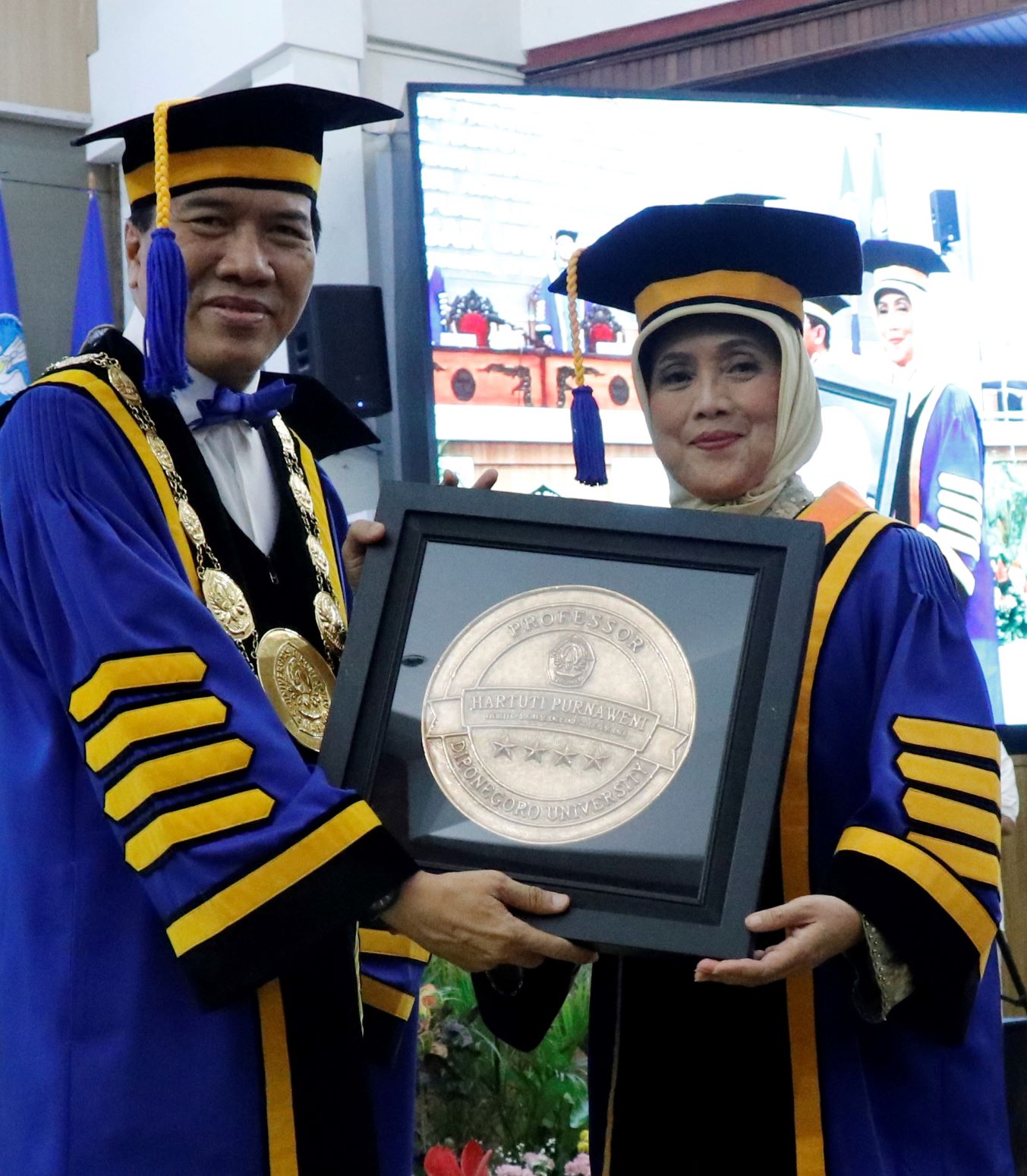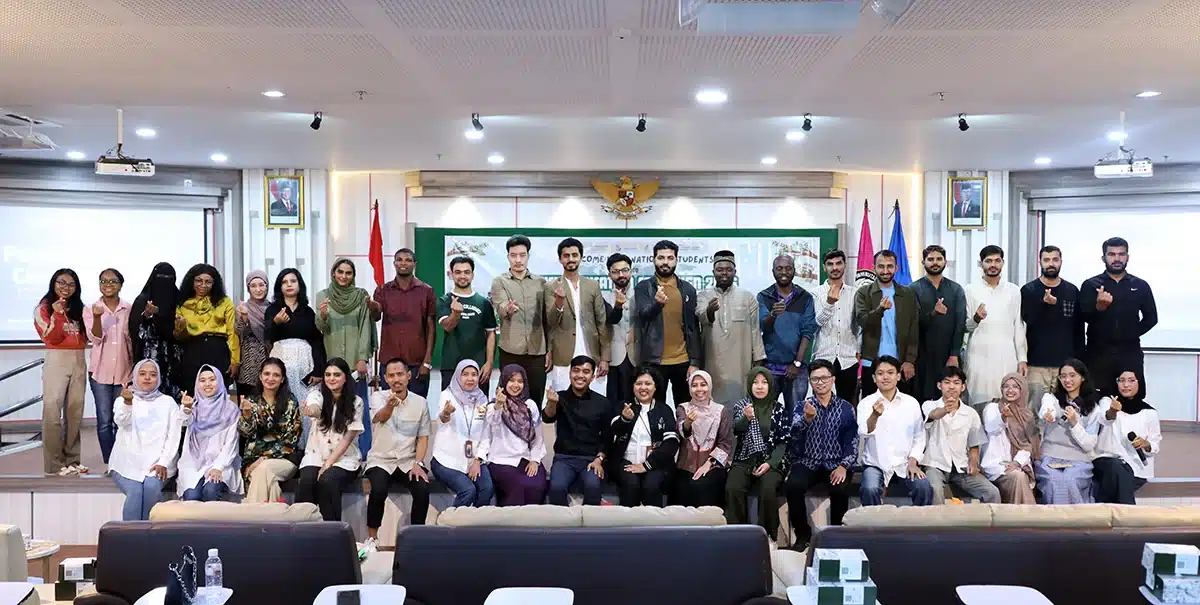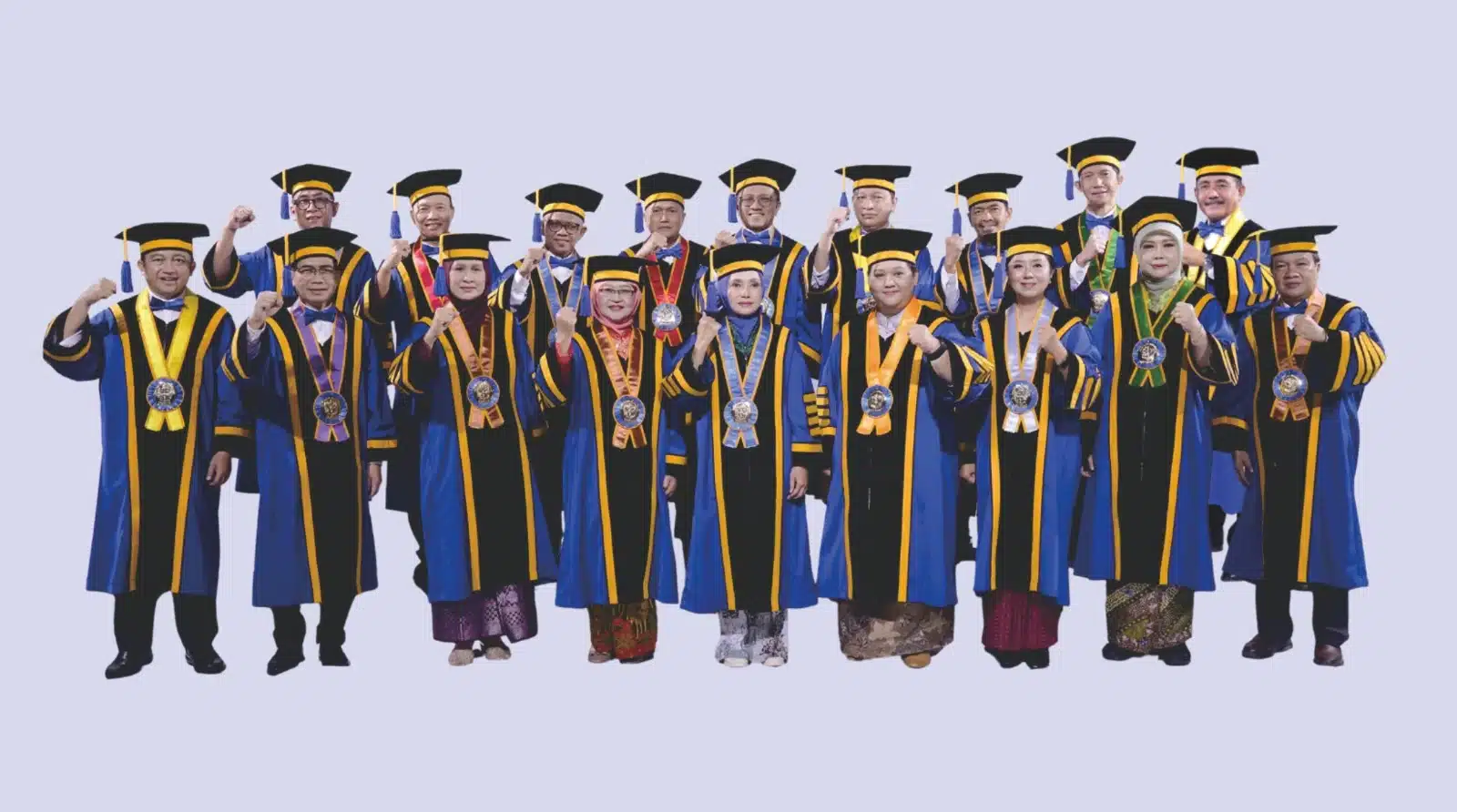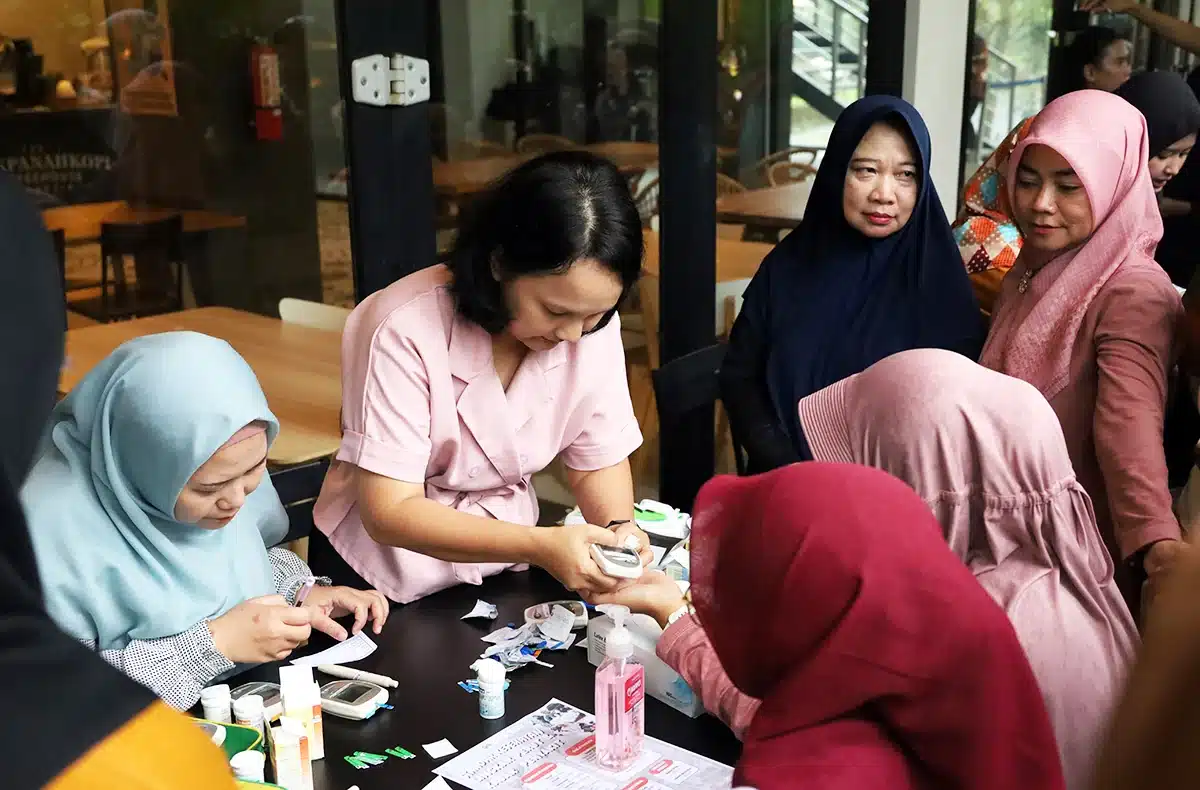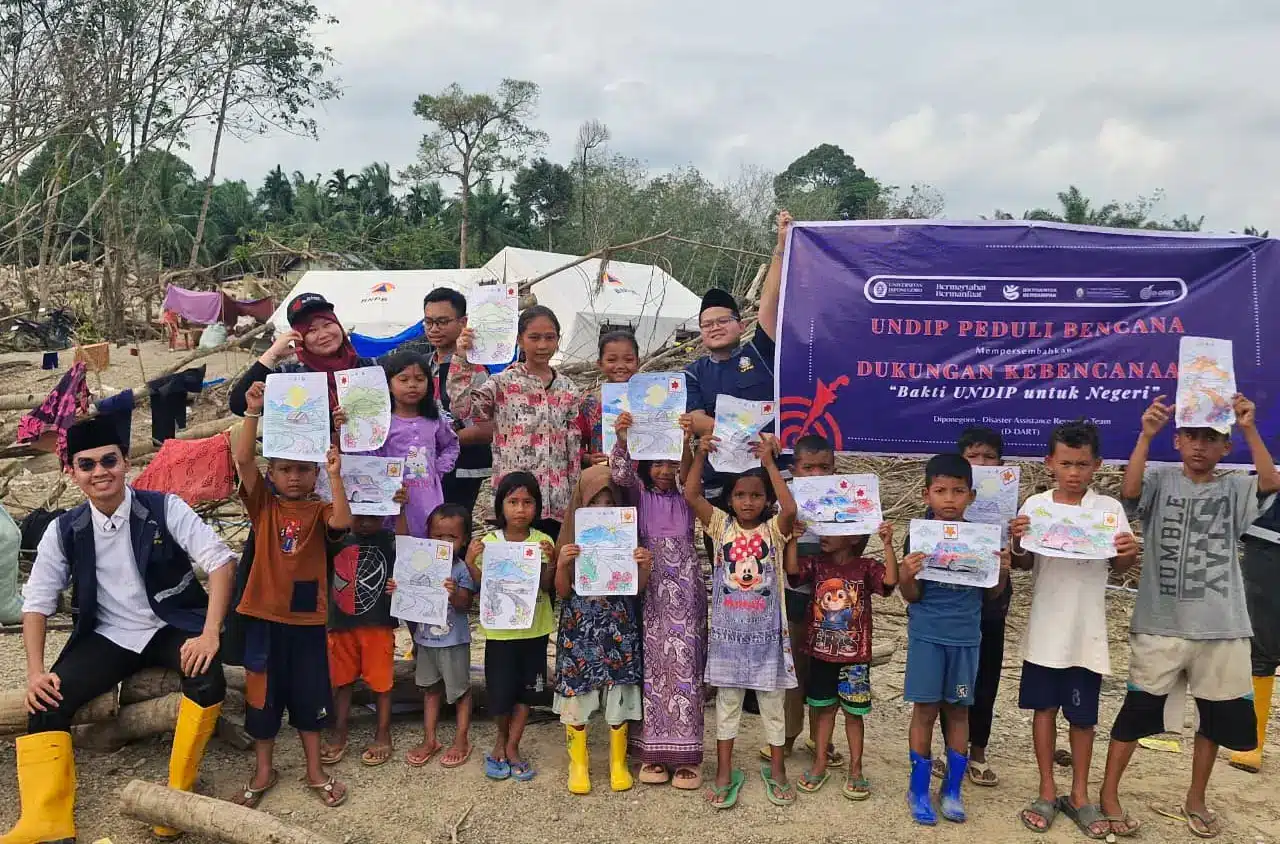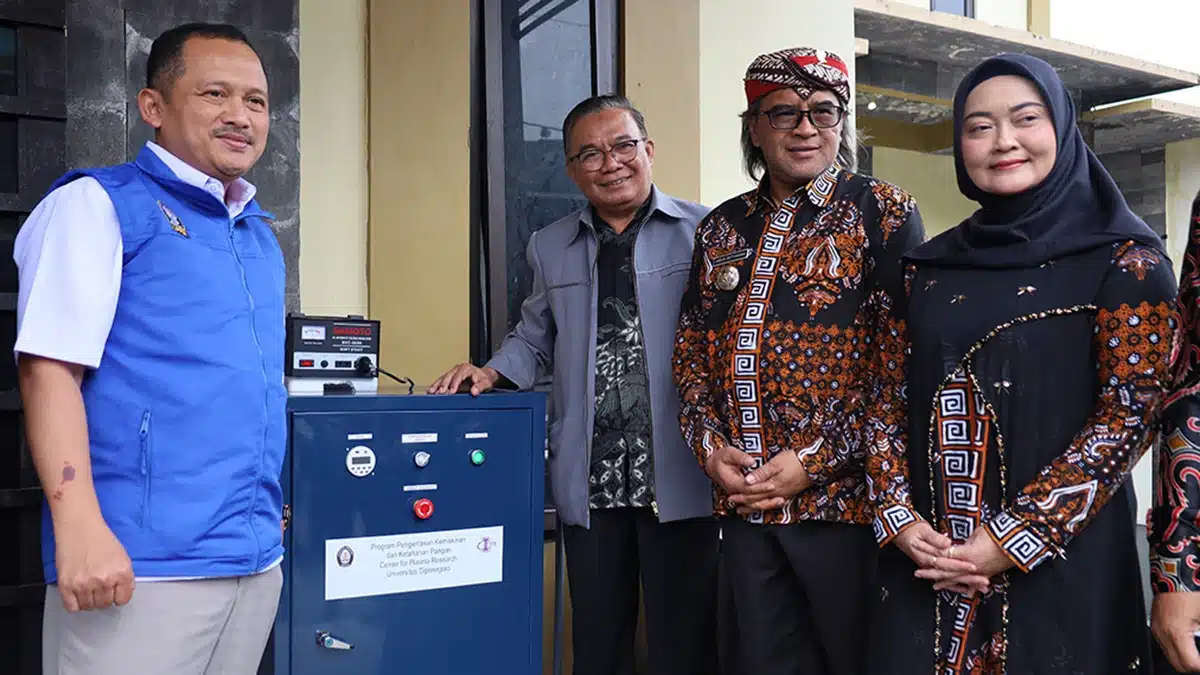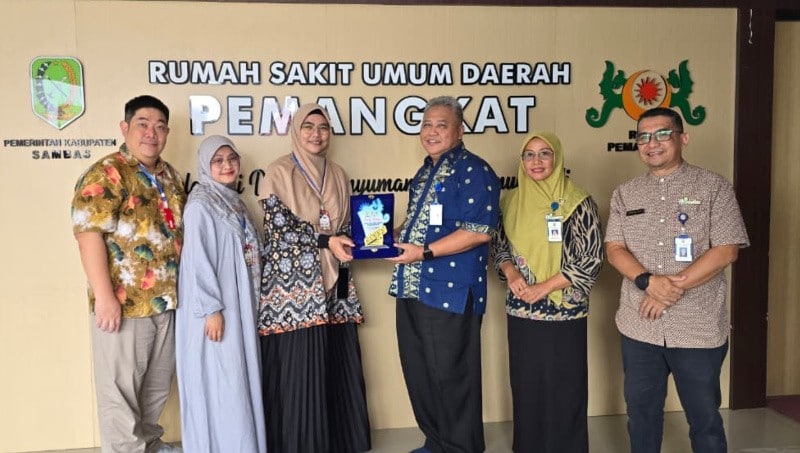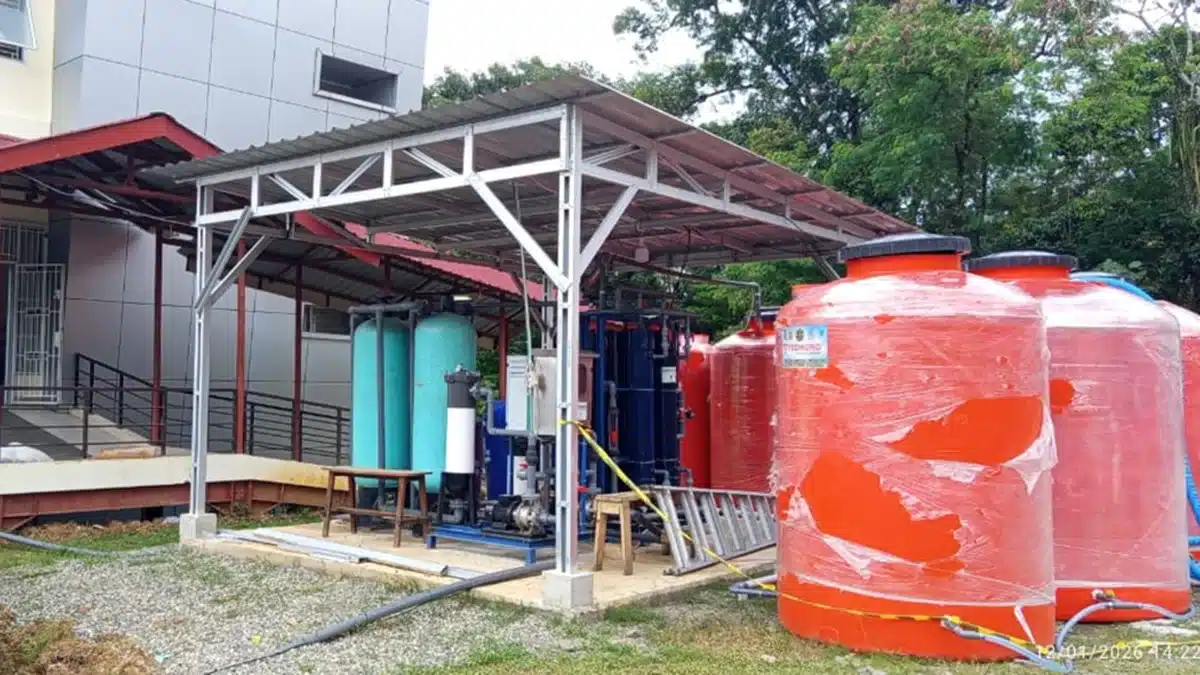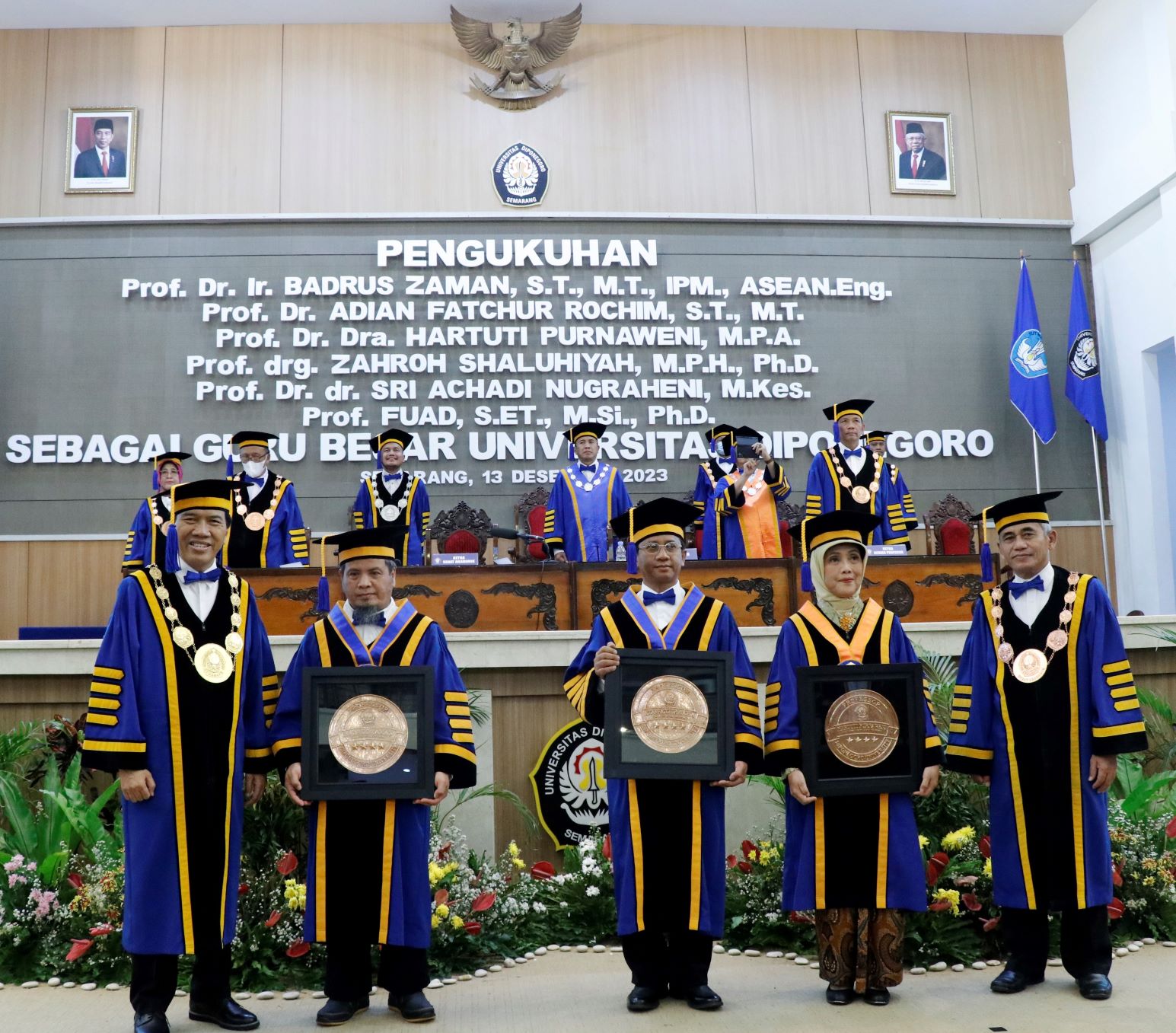Wednesday, December 13, 2023, Diponegoro University again inaugurated three Professors in the Faculty of Engineering and the Faculty of Social and Political Sciences in the Prof. Soedarto, S.H. Building, Tembalang at the Inauguration Ceremony as Professor at Diponegoro University. The three professors who were inaugurated were Prof. Ir. Badrus Zaman, S.T., M.T., IPM., ASEAN.Eng. (Professor Expert in Environmental Biotechnology Science), Prof. Dr. Adian Fatchur Rochim, S.T., M.T. (Professor Expert in Intelligent Computer Network Science and Scientometrics), and Prof. Dr. Dra. Hartuti Purnaweni, M.P.A (Professor Expert in Environmental Management Science).
Prof. Ir. Badrus Zaman, S.T., M.T., IPM., ASEAN.Eng., in his scientific speech entitled “Biodrying Domestic Waste Processing as a Sustainable Alternative Energy Producer,” explained that waste is one of the environmental problems of paramount concern in Indonesia. In 2022, the amount of waste that can be handled was only around 51% and is still a problem at the Final Processing Site (TPA), such as conditions managed without a sanitary system, excess capacity, poor gas handling, poor leachate processing, which has the potential to cause further environmental problems.
The biodrying system is a system that is reliable, effective and efficient, easy to operate and relatively cheap, so it can be a solution for handling waste generation in the form of food waste, wood, leaves, plastic and paper. The biodrying system is also a system that produces low Green House Gas (GHG) emissions while producing very minimal liquid waste in the form of leachate and biodrying products in the form of Refuse Derived Fuel (RDF), which is a sustainable alternative energy source that can be utilized for various purposes both on a home scale, small scale to large scale industry.
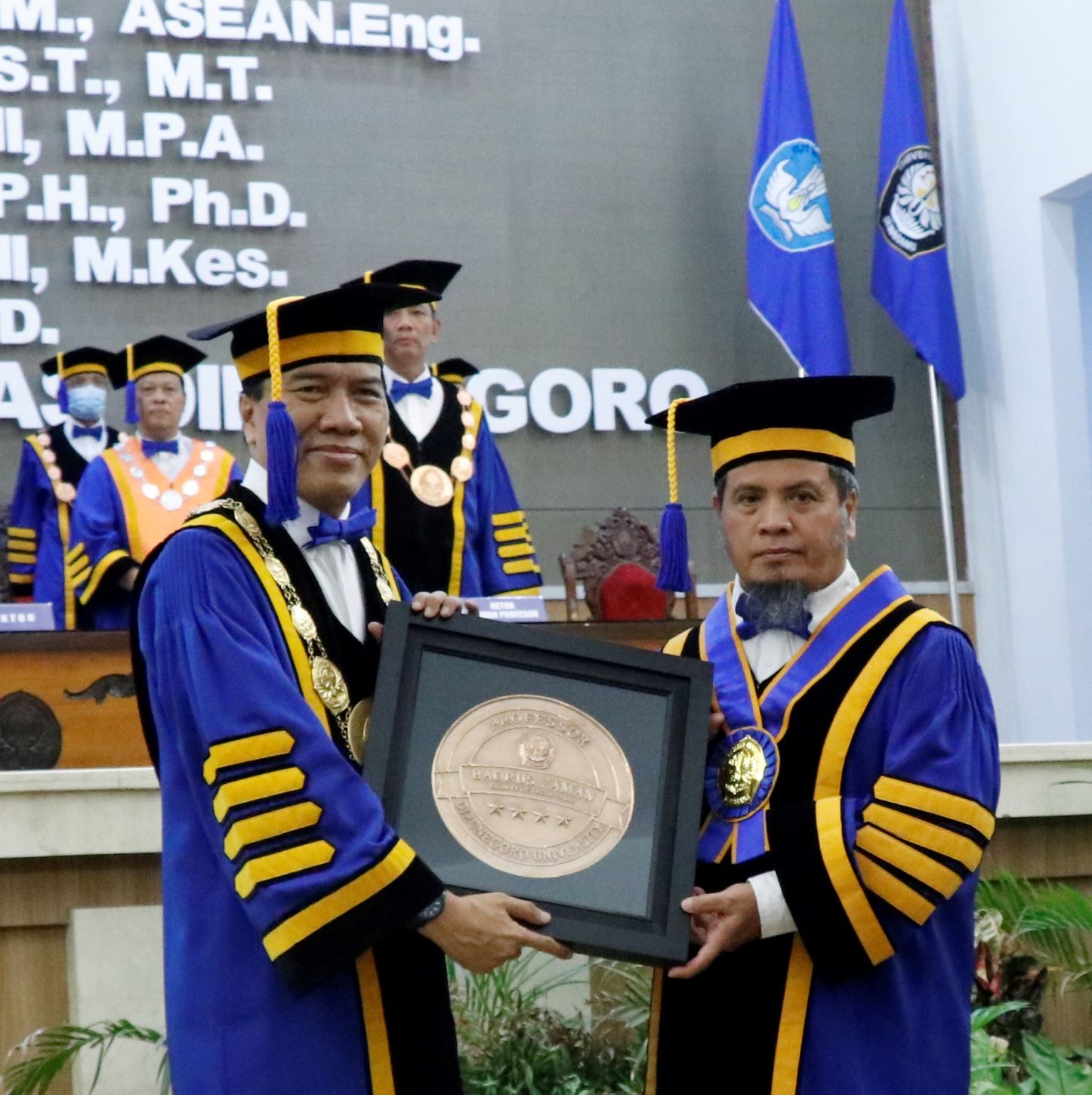
Meanwhile, Prof. Dr. Adian Fatchur Rochim, S.T., M.T., in his scientific idea entitled “Modification of the H-Index Algorithm for a More Proportional Researcher Impact Indicator,” explained that the H-index is an indicator for measuring the impact and productivity of researchers which many institutions and universities use. This indicator has weaknesses, including being unable to calculate productive and perfectionist researchers. Indonesia is a country characterized by productive researchers, with a high number of publications, but the number of citations still needs to be higher. Prof. Adian has created a new measurement method for researcher impact indicators for Indonesia called RA-index.
Another idea contribution Prof. Adian made was an additional value called D-offset, which was able to provide differentiating capabilities to the H-Index in ranking several researchers with the same index value. It is hoped that this measurement method can become a more proportional indicator of researcher impact for Indonesia and countries that have similar characteristics.
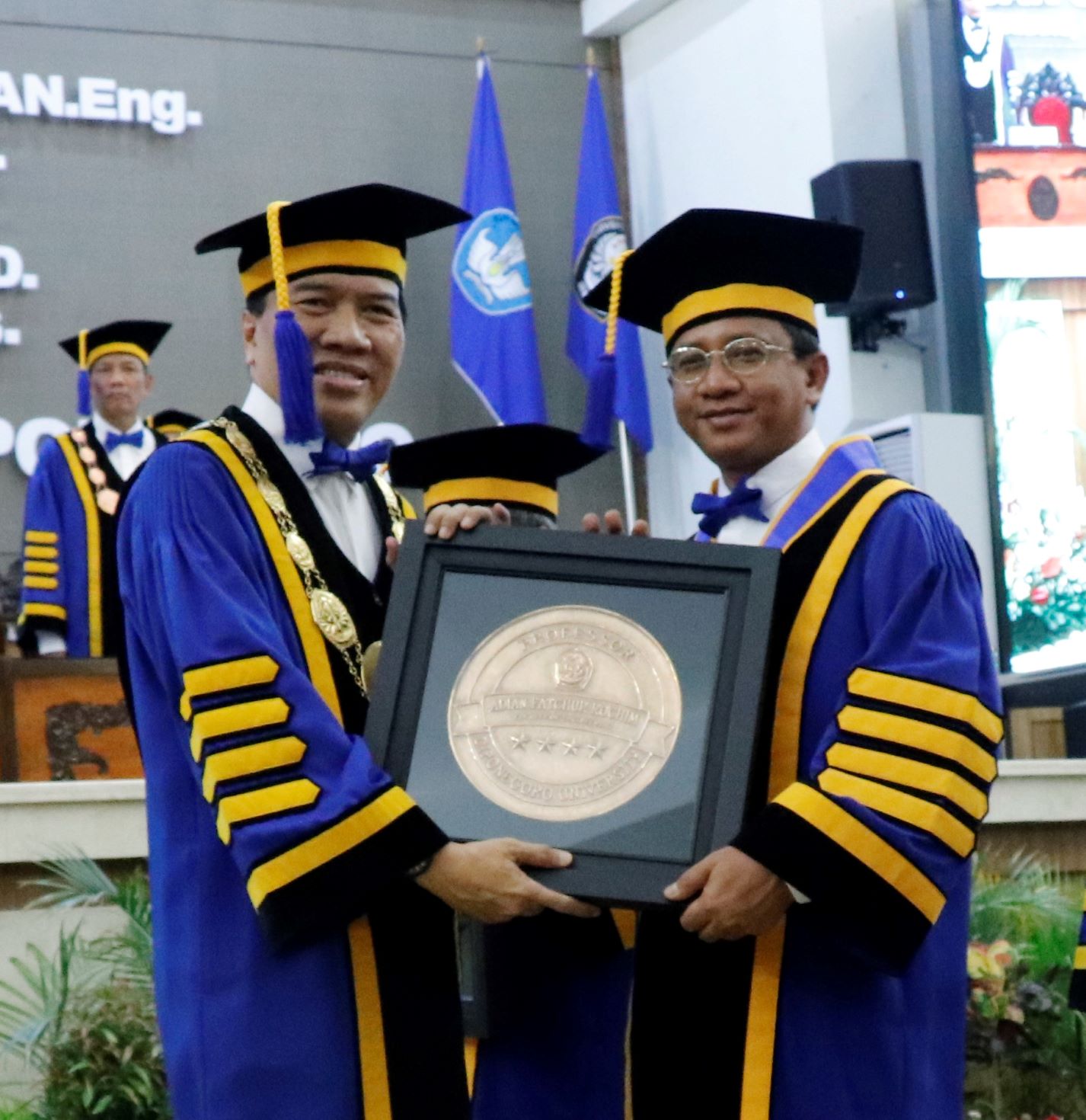
Prof. Dr. Dra. Hartuti Purnaweni, M.P.A., in her scientific speech presentation entitled “Environmental Governance as a Pillar of Sustainable Development,” explained that the environment is one of the most essential parts of human survival. However, environmental degradation and damage are occurring more rapidly. The increase in population and human needs, as well as changes in lifestyle that are not in accordance with the supporting capacity and carrying capacity of the environment, are determining factors for the occurrence of various phenomena of climate change, pollution, food shortages, and damage to ecosystems and biodiversity habitats. Various disasters arise that are very detrimental to society, such as floods, landslides, forest and land fires, abrasion and erosion. Disasters must be overcome through public policies and programs, which are implemented through public management. The success factor for public policy lies in public management, in this case, environmental governance.
It is urgent to implement sustainable development, namely development that seeks to meet the needs of the present generation without sacrificing the interests of future generations to meet their needs. The implementation of action must be far from lousy governance practices but sustainable development that is in accordance with good governance, which includes Economic, Ecological, and Social. Increasing prosperity does not come at the expense of saving the environment because we are facing the threat of global warming, which has even led to global boiling. Even more significant is the danger of loss of natural resources and biodiversity. Indonesia needs to make serious efforts to encourage environment-based policies (environment mainstreaming) and respect environmental services that are often overlooked. (Sudanta – Public Relations)
